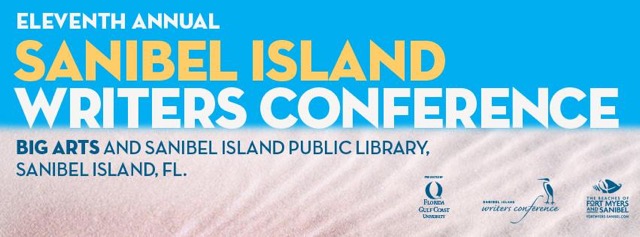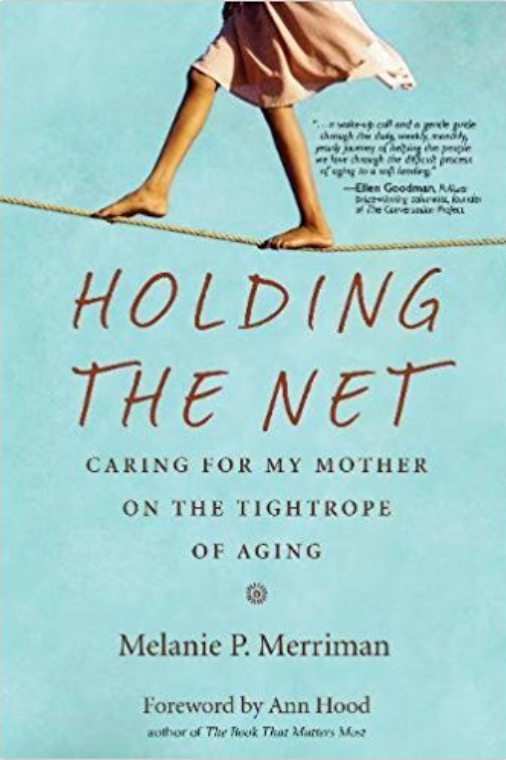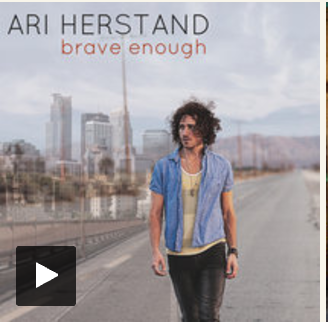Show Notes Episode 160: Cliches Saved My Life
/Today on our show, we bring you a story by student Emily Henderson. The story is called Cliches Saved My Life.
Emily Henderson has been featured before on Writing Class Radio: Ep 144: When Is a Gift More than a Gift? That story is about living through Xmas after the death of a child. It’s a beautiful and sad story and one of our best stories ever. Emily can write!
Emily Henderson is a runner and writer living in Santa Barbara CA. She’s written for Scary Mommy, HuffPost, The Santa Barbara Independent, and Writing Class Radio. She is currently writing a memoir about processing the loss of her son while running every street in her city. For more from Emily, you can read her Substack, I'm Really Very Literary.
You can follow her on Instagram @emilykathleenwrites or visit emilykathleenwrites.com.
Writing Class Radio is hosted by Allison Langer and Andrea Askowitz. Audio production by Matt Cundill, Evan Surminski, Chloe Emond-Lane, and Aiden Glassey at the Sound Off Media Company. Theme music is by Justina Shandler.
There’s more writing class on our website including stories we study, editing resources, video classes, writing retreats, and live online classes. Join our writing community by following us on Patreon.
A transcript of the show is available here.
If you want to write with us every week, you can join our First Draft weekly writers groups. You have the option to join me on Tuesdays 12-1 ET and/or Thursdays with Eduardo Winck 8-9pm ET. You’ll write to a prompt and share what you wrote. If you’re a business owner, community activist, group that needs healing, entrepreneur and you want to help your team write better, check out all the classes we offer on our website, writingclassradio.com.
Join the community that comes together for instruction, an excuse to write, and the support from other writers. To learn more, go to www.Patreon.com/writingclassradio. Or sign up HERE for First Draft for a FREE Zoom link.
A new episode will drop every other WEDNESDAY.
There’s no better way to understand ourselves and each other, than by writing and sharing our stories. Everyone has a story. What’s yours?
See Privacy Policy at https://art19.com/privacy and California Privacy Notice at https://art19.com/privacy#do-not-sell-my-info.
Transcript
Allison Langer 0:14
I'm Alison Langer.
Andrea Askowitz 0:16
I'm Andrea Askowitz and this is Writing Class Radio. You'll hear our true personal stories and learn how to write your own stories. Together, we produce this podcast, which is equal parts heart and art. By heart, we mean the truth in a story. By art, we mean the craft of writing. No matter what's going on in our lives, writing class is where we tell the truth. It's where we work out our shit. There's no place in the world like writing class, and we want to bring you in.
Allison Langer 0:47
Today on our show, we bring you a story by student Emily Henderson. She had a story here aired previously on episode 144, When Is A Gift More Than A Gift? That story is about living through Christmas after the death of a child. It is fucking amazing that story. In fact, we've used that story as an example of how to write a story with our other students. And even though it's really, really sad, it is seriously one of the best stories ever written. Emily can fucking right. Emily Henderson is a runner and writer living in Santa Barbara, California. She's written for Scary Mommy, Huff Post, the Santa Barbara Independent and Writing Class Radio. To heal or at least just move again after the death of her son Emily ran every street in Santa Barbara and is working on a memoir currently titled Running In Place. You can follow her on Instagram at Emily Kathleen Writes, or visit Emilykathleenwrites.com and that's Kathleen with a K.
Andrea Askowitz 1:45
And all those links will be in our show notes on our website and on all the podcast platforms. The story we bring you today is called Cliches Saved My Life. The story is 354 words long. It's short and sweet. See what I did there. We'll be back with Emily Henderson's story after the break.
Allison Langer 2:08
We're back. This is Alison Langer and you're listening to Writing Class Radio. Here's Emily Henderson reading Cliches Saved My Life.
Emily Henderson 2:28
They say clichés are corny, predictable, and overused, but what if I told you clichés saved my life? I've been collecting clichés for 15 years, sitting in uncomfortable chairs in church basements with "people who normally would not mix." See, even that's a cliché, but unless you are a friend of Bill W., it will fly high above your head. In my writing, I often use a cliché as filler to capture an idea in a first draft. Then later, I go back and replace it with more original and specific language. My teacher tells me, you can do better, or I've heard this before when I write things like "heart racing," "end of the world," or "Suddenly, things that happen to other people were now happening to me." In July of 2019, my 17-month-old son was diagnosed with brain cancer, and by November, he was gone. After my husband and I held his cooling body and said our final goodbyes, and it was time to leave, I pulled out my collection of simple phrases like, "One day at a time," “easy does it,” and "wisdom to know the difference" and repeated them in my head like a metronome. What if the only thing that kept us safe on that drive was because "God was doing for us that which we could not do for ourselves." What if when I felt like I might not survive the death of my son, that the pain might be too great, I remembered that "feelings are not facts" and "this too shall pass," even if I don't really believe it just yet, what if I could "fake it until I make it?" What if my pocket full of clichés were the mattress I fell on after falling off a cliff, crashing through a brick wall, and then a glass window? I'm still just as bruised and broken, but because of my clichés, the alcoholism that is normally doing push-ups in the parking lot waiting for me to slip is nowhere to be found. Scared off by words like, “When Life hands you lemons..." You know the rest.
Andrea Askowitz 4:35
This is so sad and so good. It's like 300 and 54 words, I think. And it's, it's like this narrator gives us the like, what? All over like we see all the cliches she's using and the best part is that it's all about why. This is like, why does she use cliches, that's what this story is about and then she totally will kill me when she just drop, there was this moment where she dropped it in. In July of 2019, my 17 month old son was diagnosed with brain cancer and by November, he was gone. So we know why she's living, like using these cliches to save her life. It's such a full story, it's so gorgeous.
Allison Langer 5:56
You know, I have not heard or read a story like this, that leaves, trusts the reader enough, or the listener enough to let them figure things out and I loved it so much, just the way she starts with the uncomfortable chairs in the church basement. So we're like, okay, she's in a meeting, or something and then a friend of Bill's. Now, I have no idea what that was when I was young. But I dated somebody, and we were at a party and somebody said, 'oh, are you a friend to bills?' And the guy said, 'yes'. And I was like, 'who the fuck is Bill?' And later, I was told that that's the sign that people ask each other when you're an alcoholic and I just was like, wow, I learned, you know, like, I literally was like, in my 40s. So I don't know I loved it, maybe because like, oh, my God, I know, something I know something I can follow along. Like, I felt really good about that. I don't know if that meant that other people got let left out. But I think that one little thing, if somebody didn't know, they would just assume that they knew each other previously and then later, she does tell us about the alcoholism doing push ups in the parking lot.
Andrea Askowitz 7:16
Yeah, exactly. So if you didn't know, or you were wondering, there, she brought it back. She gave us more clues about what that meant, without saying it overtly or directly.
Allison Langer 7:30
But it just felt like a secret conversation between us before that and it drew me in so much because of that and I don't think we've ever had anything like that on the podcast and quite frankly, I've never read anything like that. So I just think this is super unique and really amazing. I think it would be really cool to keep trying to recreate something like that, you know, to be inspired enough to try to create our own stories
Andrea Askowitz 7:56
That's a good you're so you're saying listener, hey, radio listener, try to write a story.
Allison Langer 8:02
I'm saying that but not as geeky.
Andrea Askowitz 8:04
I like it like that, hey, radio listener, write a story in this form. So So Allison, how would you like what would what prompt would you give? Like, how would you?
Allison Langer 8:14
Well, I think if you're writing about cancer, or you're writing about something that there's a very large group that will understand and even people associated with it will also pick up the clues. So you don't have to bop the person over the head with I had cancer, you could just drop in clues and then later explain what's the story, because she's clearly suffering through something and we're not sure why, then we get a little bit of a clue that she's just lost her child, we still don't know if she was had like this challenge prior to that, but it's not important to this story. It's just that this happened to her and she's dealing with it and the only way she can get through all this shit is by telling herself those cliches one day at a time, and sort of weaves it into the whole lingo of the Alcoholics Anonymous, which I thought was brilliant. So she's got these two things going on that are woven.
Andrea Askowitz 9:12
So the story is not about cliches. It's about survival, but she's using cliches over and over again, to tell us how she survived and surviving. And she has survived two things, alcoholism, and the death of a child.
Allison Langer 9:31
Well, those are two things that she's mentioned in the story. We don't know what else she survived. She may have survived many, many things.
Andrea Askowitz 9:37
Right true exactly.
Allison Langer 9:38
As you get older and older, you almost can't get away from it.
Andrea Askowitz 9:43
Well, she actually we do know that she's survived many things because she's been a student in our classes. She's actually right now in my in my second draft class and she read this, she brought this in it and second draft is stories that are already pretty much it's not first draft. I've said they're worked on at home. I don't know how long she worked on this, but this is exactly how it came in nd I was like, this is so gorgeous. So different, beautiful. I felt that from the beginning. Just I love this story.
Allison Langer 10:15
Yeah. And it's what's also interesting I just want to say is that we're always trying to cut cliches out of everybody's writing, including our own.
Andrea Askowitz 10:24
My teacher tells me you can do better, or I've heard this before.
Allison Langer 10:28
Yeah, but we never know what those cliches actually do for somebody else. So not saying go put them all in your writing, but this particular essay shows us that in order to survive, some of us need to grasp on to and cling to cliches.
Andrea Askowitz 10:48
Absolutely. Damn. Holy shit. Don't forget to check the show notes for links to our previous episode, and a link to our social media.
Writing Class Radio is hosted by me Andrea Askowitz.
Allison Langer 11:11
And me Alison Langer.
Andrea Askowitz 11:14
Audio production by Matt Cundill, Even Surminsky, Chloe Emond-Lane and Aidan Glassey at the Sound Off Media Company. Theme music is by Justina Shandler. There's moreWriting Class at our website writingclassradio.com including stories we study, editing resources, video classes, writing retreats and live online classes. If you want to write with us every week, you can join our first draft weekly writers groups, you have the option to join Allison on Tuesdays noon to one Eastern and/or Eduarda Wink, eight to 9pm. Eastern. You write to a prompt and share what you wrote. It's the coolest and most awesome community you write you share, be there. To find out how to join go to writingclassradio.com First class is always free. If you're a business owner, entrepreneur, community activist, group that needs healing, or just want to help your team write better we can help. Check out all the classes we offer on our website writingclassradio.com. Join the community that comes together for instruction, an excuse to write and the support from other writers. A new episode will drop every other Wednesday.
Allison Langer 12:40
There's no better way to understand ourselves and each other and by writing and sharing our stories. Everyone has a story. What's yours?
Tara Sands (Voiceover) 12:52
Produced and distributed by the Sound Off Media Company.















